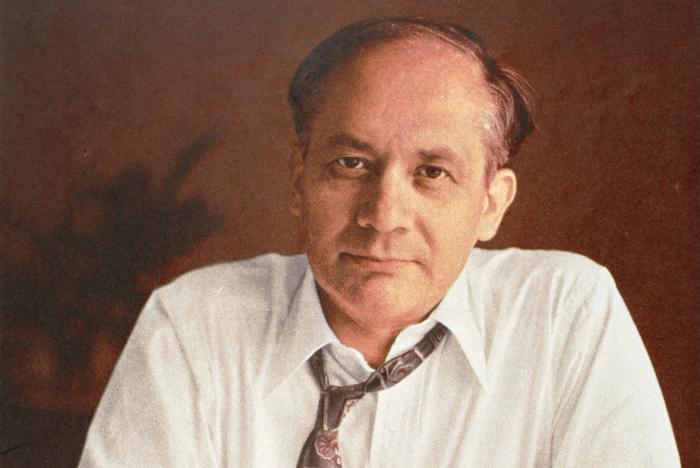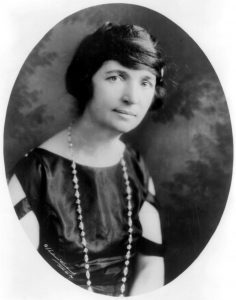
At a quiet New York cemetery in 1959, a handful of people stand around a fresh grave as a casket is lowered. Any passerby seeing the small somber ceremony might assume that the body belonged to a person of little significance. In fact, this casket carries the body of a man who is responsible for one of the largest shifts in international law in human history. Without his efforts, it is likely that the gravest crime mankind has ever committed and continues to commit would still be a crime without a name.
By the end of World War II, the Nazi regime had orchestrated the murder of over 17 million civilians in concentration camps throughout Europe. 1 Despite these egregious atrocities, no one at the time referred to the Holocaust as an act of genocide, not because it was not an appropriate descriptor, but because Raphael Lemkin had not yet coined the word and defined the crime for the world. The outcome of his personal crusade to encode ‘Genocide’ in an internationally recognized and binding Convention to which the US would sign on became his legacy (the US signed on decades after his passing).
Lemkin was born to a Polish-Jewish family in 1900 in a small village called Bezwodne in what was then The Russian Empire. Home schooled by his mother, he proved to be a brilliant scholar. By the time he received his undergraduate degree from Jan Kazimierz University he had learned over 14 languages and showed strong aptitude and interest in international law. After a career as a prosecutor in Poland, he was forced to flee to Sweden to evade capture by the Nazi forces in 1939. However 49 of his relatives were tortured and/or killed, drops in the ocean of inhumanity that was the Holocaust. 2

After fleeing the Nazi invasion, Lemkin eventually made his way to the United States. There he became a prolific professor, lecturing at the law school at Duke University in 1941 and the School of Military Government at the University of Virginia in 1942. He also served as an adviser to the United States War Department specializing in international law. 3
The world first became aware of Lemkin’s concept of genocide after the publication of what would arguably be his most important work, Axis Rule in Occupied Europe, in 1944. Primarily a legal analysis of the behavior of Nazi Germany in occupied territories during World War 2, the book also contained a full definition of the crime Lemkin dubbed “genocide.” 4 After this publication, Lemkin dedicated the rest of his life to getting the international community to acknowledge genocide as a crime under international law.
Lemkin drafted a resolution for a treaty which would officially ban genocide under international law. He then took his resolution on the road, presenting it to any nation which would hear him, hoping to garner enough support to endorse a convention on the subject. After years of lobbying the international community, The United States UN delegation agreed to present Lemkin’s resolution to the General Assembly. Dubbed “The Convention on the Prevention and Punishment of the Crime of Genocide,” the resolution was adopted on December 9th, 1948. It would be another 3 years before enough countries signed on the the convention to make it enforceable. Much to Lemkin’s dismay, The United States was not one of the first 20 signatories. 5

Lemkin dedicated the rest of his life to lobbying those nations which had not yet signed onto the convention, with the United States being his primary target. He invested every moment of his time and every cent of his modest wealth to landing that particular white whale. He eventually died of a heart attack, impoverished, unemployed, and underappreciated, in 1959. His funeral was a small affair, reportedly only attended by 7 people. 6 Yet, today, the is no Law School, no class that teaches Human Rights, nor any conversation of World War II and any of the subsequent Genocides that does not mention his name. More importantly, the Convention provided some tools to prevent or punish such cases.
The greater legacy of his life’s work would not be realized until several decades after Lemkin’s death. The United States would eventually sign the Genocide Convention, but not until 1988. The international community would eventually convict a man of the crime Lemkin coined, but not until the International Criminal Tribunal for Rwanda in 1998 which found Jean-Paul Akayesu guilty of the Rwandan genocide. Three years after that, Radislav Krstic was similarly convicted for the murder of 8,000 Bosnian Muslims in Yugoslavia. 7 Though he died nearly 40 years too early to see the fruits of his labor truly flourish, we can hope that his soul finds solace in the fact that, thanks to him, these heinous actions have a name and are viewed the world over as being among the worst crimes humanity has ever known. Eradicating the crime of genocide still eludes us but at least accountability is now more widespread around the world. 8
- Donald Niewyk and Francis R. Nicosia, The Columbia Guide to the Holocaust (New York: Columbia University, 2000), 43. ↵
- Raphael Lemkin and Donna-Lee Frieze, Totally Unofficial: The Autobiography of Raphael Lemkin (New Haven: Yale University Press, 2013). ↵
- Robert Bliwise, “The Man Who Criminalized Genocide,” Duke Magazine, November 14, 2013, http://dukemagazine.duke.edu/article/man-who-criminalized-genocide . ↵
- Rafael Lemkin, Axis Rule in Occupied Europe: Laws of Occupation, Analysis of Government, Proposals for Redress, (Washington D.C.: Carnegie Endowment for International Peace, Department of International Law, 1944) pg. 79. ↵
- Raphael Lemkin and Donna-Lee Frieze, Totally Unofficial: The Autobiography of Raphael Lemkin (New Haven: Yale University Press, 2013). ↵
- Jay Winter, “Prophet Without Honors” The Chronicle, June 3, 2013, https://www.chronicle.com/article/Raphael-Lemkin-a-Prophet/139515 . ↵
- Robert Bliwise, “The Man Who Criminalized Genocide,” Duke Magazine, November 14, 2013, http://dukemagazine.duke.edu/article/man-who-criminalized-genocide . ↵
- United Nations, “Convention on the Prevention and Punishment of the Crime of Genocide,” United Nations Treaty Collection, 78:1, 1021 (9 December 1948), New York: United Nations, 1951, 278-311. ↵



196 comments
Audrey Uribe
This article is composed well and is very intriguing to read. Genocide isnt something talked about frequently due to the depressing outcome of genocide. Raphael Lemming is a perfect example of how it just takes one person to change the world. I’m glad you voice your opinions to better our society. It takes a lot of work to influence others. Congrats on the nomination
Leopoldo Martinez-Milland
It is very unfortunate to see that Raphael Lemkin was not alive to see the effect he had on the world. Matthew Wyatt does a good job near the end of the article depicting the lack of coverage Lemkin’s death had during that time, especially with Wyatt emphasizing this by highlighting that only seven people went to Lemkin’s funeral. Thanks to Wyatt and many other journalists, Lemkin’s work has finally put him up on a pedestal and given him the respect and appreciation that he truly deserves.
Danniella Villarreal
I never knew about this man and his great contributions to humanity, so this article was very interesting and informative. It’s tragic that a man that was as important as he was in developing this law against genocide would never live to see any of his work materialized. This article was very informative about the term “genocide”, and it was intriguing from the very start.
Leeza Cordova
I never knew about this man and his great contributions to humanity, so this article was very interesting. He did everything that he could and it was sad to know that he died without the appraisal he deserved. He spent all of his money into this and not even the U.S. wanted to sign off on it. This article made me think about the U.S. and how we did not even want to sign off on it, even though we are supposed to be seen as the head of world.
Samantha Luckey
Congratulations on being nominated for your article! Before reading this article, I knew nothing about this man, so this article was very informative about the term “genocide”. Overall the writing was well done, and this author was able to engage the reader to continue reading on, as well as, informing the reader of important significant details over Rapheal Lemkin’s life. Great work!
John Berka
It’s tragic that a man that was as important as he was in developing this law against genocide would never live to see any of his work come to fruition. He was truly a pioneer looking to make the world a better place and save as many lives as he possibly could with his laws against genocide. He made such a huge contribution to humanity and yet he still died humbly with hardly a penny to his name. He deserves to be a household name and recognized for the hero he is.
Alexandra Lopez
Congratulations on your nomination. The author of this article did an outstanding job intriguing the reader firsthand in their introduction. I cannot believe a man that made such an impact on humankind could not live to see his contributions. The article was descriptive and informative of a humble man who today is still heard in classrooms in universities of his works. Great read! (reposted)
Alexandra Lopez
Congratulations on your nomination. The author of this article did an outstanding job intriguing the reader firsthand in their introduction. I cannot believe a man that made such an impact on humankind could not live to see his contributions. The article was descriptive and informative of a humble man who today is still heard in classrooms in universities of his works. Great read!
Natalie Juarez
Your introduction really painted a picture of a humble man. If one was to pass that service there is no telling that they are looking at one of such an icon. Although he made such an incredible push towards the recognition of the meaning of genocide and have it acknowledged throughout the world, it had little to show for his support system when it came to his memorial service. I congratulate you on your nomination.
Samantha Luckey
Congratulations on being nominated for an award! This article was extremely moving and enlightening. I must say that topic of genocide is not something I prefer to read about, but your article was very engaging. Overall the writing was well done, and this author was able to engage the reader to continue reading on, as well as, informing the reader of important details over Raphael Lemming life. Great work!